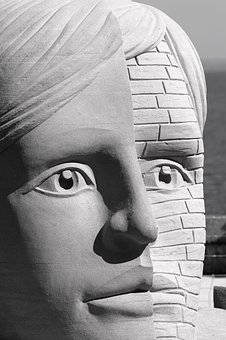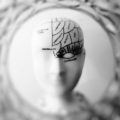Bipolar Test
Bipolar disorder especially in children and adolescents remains a major public health challenge that has been associated with significant functional impairment. The increased risk of weight problems, impaired social support systems and substance-related disorders have been associated with adults having similar bipolar conditions.
Definition of Bipolar disorder
Bipolar disorder is a mental illness that results in severe high and low moods and changes in thinking, behavior, sleep and energy. Previously known as manic depression, the condition is characterized by periods of excessive feeling of high energy and happiness (elevated mood) and other periods of hopelessness, sluggishness and sadness (periods of depression). In between these two extremes is a period when the individual usually feel normal. The word bi polar (meaning 2 poles) emanates from the highs and the lows which are considered as two “poles” of mood. The condition affects around 1% of the global population and over two million American adults or 1 percent of the population aged 18 and above according to the Mental Health Research Association.
Features of Bipolar Disorder
- Tendency to inflict harm on one’s self this has been reported in 30–40 percent of bipolar cases.
- Unexplained and uncontrollable crying during periods of depression
- Excessively energetic, irritable or abnormal behavior may be noticed.
- Rapid speech and poor concentration.
- They often have a poor or negative outlook on life.
- Usually make poorly thought out decisions with little or no regard to the consequences of such actions and making grand and unrealistic plans.
- Unusually high sex drive.
- They maintain very poor eye contact with other people.
- They sleep less during the maniac phase.
- Prone to suicidal tendencies (greater than 6 percent over 20 years).
Causes of Bipolar Disorder
Medical Science is yet to unravel the specific cause of bipolar disorder, the condition is currently not well understood. Several studies have shown that genetic and environmental factors such as history of childhood abuse, and long-term stress play a vital role in the manifestation of the condition. Some studies on the gene angle of bipolar disorder have postulated that many candidate genes and chromosomal regions are linked to bipolar disorder susceptibility with each gene exerting a moderate or mild effect.
Categorization of Bipolar disorder
Bipolar disorder is categorized based on the frequency or occurrence of maniac episodes, severity and duration of symptoms, the condition is sub divided into:
- Bipolar I Disorder: Where there has been at least one manic episode, with or without depressive episodes.
- Bipolar II disorder: Where there has been at least one hypomanic episode (but no manic episodes) and one major depressive episode
- Cyclothymic disorder: where the symptoms are of a prolonged duration but less severe
Bipolar Test
Before conducting a bipolar test, several factors are usually taken into consideration including abnormal behavior reported by family members, friends or co-workers, self-reported experiences of the symptomatic individual and observable signs of illness as assessed by a clinician. The Diagnostic and Statistical Manual of Mental Disorders, Fifth Edition (DSM-5) of the American Psychiatric Association’s and the International Statistical Classification of Diseases and Related Health Problems, 10th Edition (ICD-10) Of the World Health Organization'(WHO) are the most widely used criteria for diagnosing bipolar disorder. While the ICD-10 criteria are more commonly used in clinical settings outside of the United States, the DSM benchmark is the criteria of choice within the United States.
Several online platforms offer bipolar testing services these include: the Family for Depression Awareness which offers an online bipolar testing based on the PHQ9 for depression and MDQ for bipolar disorder. Click here for Online Bipolar Testing
Setbacks of Online diagnostic Bipolar Test Tools
Many of the tools available online for bipolar testing only offer limited assistance in the determination of an individual’s bipolar status. Majority of such bipolar test assumes that the individual already had at least one episode of depression in their lives a generalization which skews the results. Online bipolar test should never be taken as replacement for full assessment which is usually carried out by a qualified clinician.
Genetic testing for Bipolar Disorder
Genetic testing in the management of bipolar disorder is a new systematic approach which completely differs from the classical but standard approach of administering different types of drugs on a patient and adjusting the doses until a patient feels better. This haphazard method often takes longer (month- years) and most times end without achieving the goal of therapy. Genetic testing of bipolar disorder is centered on a search for genes that are likely to improve the body’s ability to benefit from certain medications and treatments options. It provides an objective and personalized biological markers which can help improve the understanding of the mechanisms that lead to mental health conditions and how to correct them. Identifying these genetic markers provides an evidence-based guidance system for clinicians and help them tailor their treatment plan to each patient based on his or her needs. This technique is already showing a lot of promise in the management of some mental conditions like schizophrenia. Recent reports indicates that for the first time, researchers have been able to trace the onset of schizophrenia to a person’s genetics. A study conducted at the Harvard Medical School, Boston Children’s Hospital and the Broad Institute reported that a variant in a particular gene interferes with a process during the adolescence stage of life where the brain sheds redundant/weak neural connections as the individual matures. According to the researchers, those with overactive forms of the gene tend to shed those neurons faster and are more prone to schizophrenia.
Advantages of Gene Testing In Bipolar Disorder
- It provides an objective view of the condition
- It is personalized and thus creates the pathway for individual patient centered care
- It can help improve the understanding of the mechanisms that lead to mental health conditions.
- It provides an evidence-based guidance system for clinicians and help them tailor their treatment plan.
Treatment
Treatment for bipolar condition is mainly restricted to psychotherapy and the administration of medications such as mood stabilizers and antipsychotics. Treatment with lithium has shown a success rate of between 70 to 85% in the best cases and 40 to 50% in the worst cases according to a report for mental health by the Surgeon General. However, the administration of psychotropic agents in the management of bipolar disorder, especially the use of second-generation antipsychotics, has been linked with increased weight gain.
Natural Remedies
Exercise, sleep and natural antidepressants supplements have proven to be effective against the symptoms of bipolar disorder. These supplements include;
- Omega-3 fatty acids
- Choline
- The amino acids taurine and tyrosine.
- Zinc
- Vitamin C
- B vitamins
- Magnesium
Family support systems and Bipolar disorders
An effective family support system and healthy relationships is crucial for the overall success of any therapy for bipolar disorders. Families have an important role to play in this regard, their closeness to the individual with the condition will help in the early recognition of signs of an oncoming episode, monitor behavior, assist with getting the person back on their treatment track afterwards and helping in the overall management of the condition.
Prevention of Bipolar disorders
- Avoid substance abuse.
- Avoid toxic relationships.
- Avoid alcohol and recreational drugs
- Reduce stress








I was studying some of your content on this website and I think this web site is really informative ! Continue posting.
I’m gone to tell my little brother, that he should also visit this webpage on regular
basis to get updated from most up-to-date news
update.